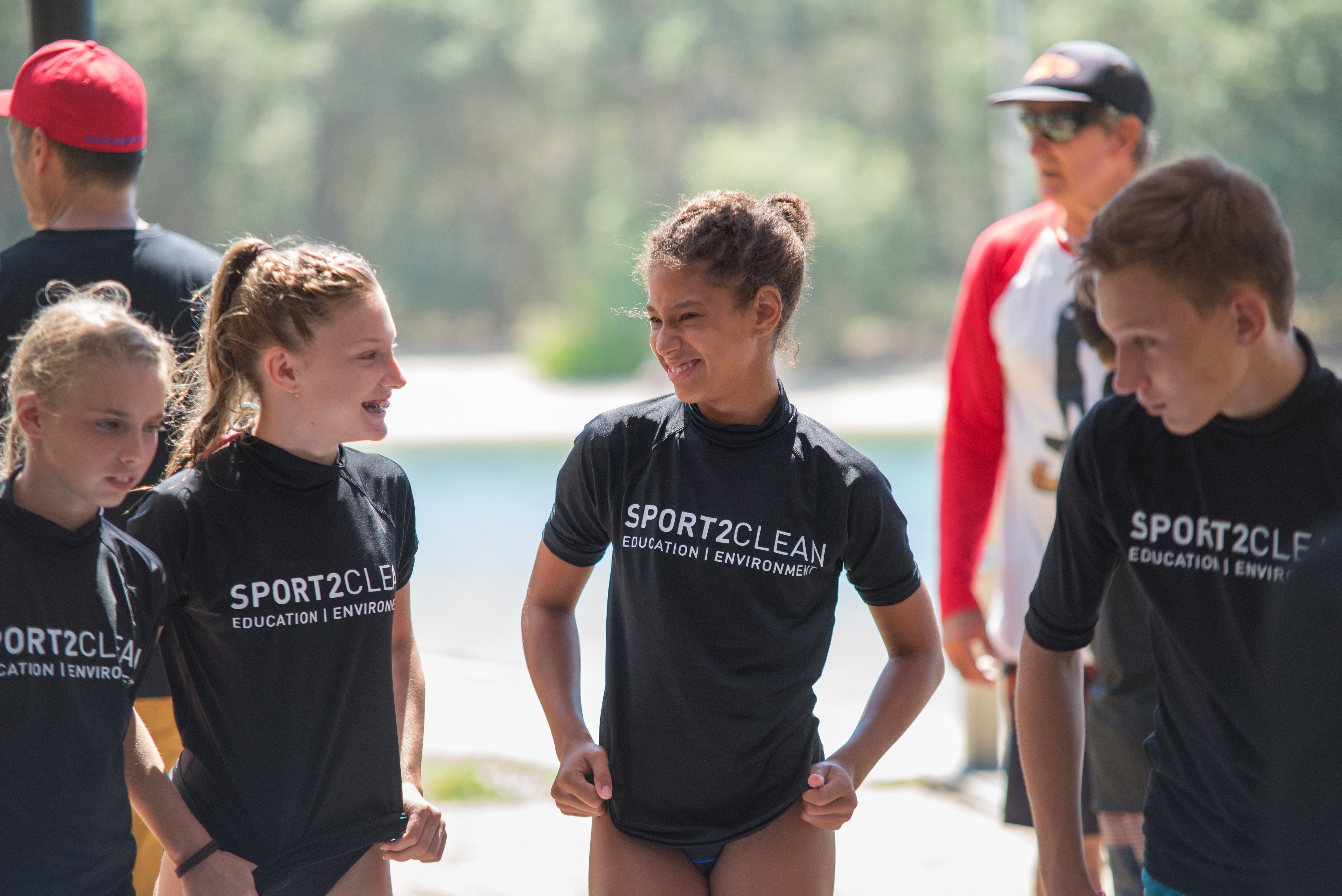Sport2Clean Education Environment
(
Non-governmental organization (NGO)
)
#OceanAction42075
Description
Sport2Clean engages with young Australians in a positive environmental activity, an activity that connects students directly with the ocean. We do this currently through the sports of stand up paddle boarding and surfing, using Sport2Clean for this approach.
Participants get the opportunity to experience their surroundings in the natural environment from their surfboard or stand up paddle boards. They appreciate the role the ocean plays, not only by giving us our playground, but also by providing life for the animals that inhabit it.
After this ocean experience we perform an onshore education session and participation in a beach clean-up. This positive engagement with the ocean opens doors in educating participants about the global concerns facing the ocean and marine life today. By using sport we are creating an action and awareness surrounding single use plastic waste and litter in general. Linking this back to our local sporting grounds and stadiums as litter is often left on the ground after everyone has gone home.
Students leave the program realising sport, through Sport2Clean can play a vital role in future awareness in helping reduce litter and single use plastics items, that potentially end up washing down the drain and out into our oceans. We are calling this approach from the field to the ocean, a program that provides young people with a better understanding and context about what happens if we just drop the litter at sports fields, and stadiums.
This is a great collaboration for a sports legacy by being able to offer awareness through our brand, potentially reaching millions of people globally by encouraging every code of sport to adopt an element of Sport2Clean in their approach, educating young people about the importance of looking after what we have all come to enjoy, and ultimately helping reduce marine debris going into our oceans where we work and play.
SDGS & Targets
Goal 14
Conserve and sustainably use the oceans, seas and marine resources for sustainable development
14.1
By 2025, prevent and significantly reduce marine pollution of all kinds, in particular from land-based activities, including marine debris and nutrient pollution
14.1.1
(a) Index of coastal eutrophication; and (b) plastic debris density
14.2
By 2020, sustainably manage and protect marine and coastal ecosystems to avoid significant adverse impacts, including by strengthening their resilience, and take action for their restoration in order to achieve healthy and productive oceans
14.2.1
Number of countries using ecosystem-based approaches to managing marine areas
14.3
Minimize and address the impacts of ocean acidification, including through enhanced scientific cooperation at all levels
14.3.1
14.4
By 2020, effectively regulate harvesting and end overfishing, illegal, unreported and unregulated fishing and destructive fishing practices and implement science-based management plans, in order to restore fish stocks in the shortest time feasible, at least to levels that can produce maximum sustainable yield as determined by their biological characteristics
14.4.1
14.5
By 2020, conserve at least 10 per cent of coastal and marine areas, consistent with national and international law and based on the best available scientific information
14.5.1
14.6
By 2020, prohibit certain forms of fisheries subsidies which contribute to overcapacity and overfishing, eliminate subsidies that contribute to illegal, unreported and unregulated fishing and refrain from introducing new such subsidies, recognizing that appropriate and effective special and differential treatment for developing and least developed countries should be an integral part of the World Trade Organization fisheries subsidies negotiation
14.6.1
Degree of implementation of international instruments aiming to combat illegal, unreported and unregulated fishing
14.7
By 2030, increase the economic benefits to Small Island developing States and least developed countries from the sustainable use of marine resources, including through sustainable management of fisheries, aquaculture and tourism
14.7.1
Sustainable fisheries as a proportion of GDP in small island developing States, least developed countries and all countries
14.a
Increase scientific knowledge, develop research capacity and transfer marine technology, taking into account the Intergovernmental Oceanographic Commission Criteria and Guidelines on the Transfer of Marine Technology, in order to improve ocean health and to enhance the contribution of marine biodiversity to the development of developing countries, in particular small island developing States and least developed countries
14.a.1
14.b
Provide access for small-scale artisanal fishers to marine resources and markets
14.b.1
Degree of application of a legal/regulatory/policy/institutional framework which recognizes and protects access rights for small‐scale fisheries
14.c
Enhance the conservation and sustainable use of oceans and their resources by implementing international law as reflected in United Nations Convention on the Law of the Sea, which provides the legal framework for the conservation and sustainable use of oceans and their resources, as recalled in paragraph 158 of "The future we want"
14.c.1
Number of countries making progress in ratifying, accepting and implementing through legal, policy and institutional frameworks, ocean-related instruments that implement international law, as reflected in the United Nations Convention on the Law of the Sea, for the conservation and sustainable use of the oceans and their resources
SDG 14 targets covered
| Name | Description |
|---|---|
| 14.1 | By 2025, prevent and significantly reduce marine pollution of all kinds, in particular from land-based activities, including marine debris and nutrient pollution |
Deliverables & Timeline
Resources mobilized
Partnership Progress
| Title | Progress Status | Submitted |
|---|---|---|
| Partnership Progress 2018-05-06 | On track | |
| Partnership Progress 2018-01-20 | On track | |
| Partnership Progress 2017-12-19 | On track | |
| Partnership Progress 2017-11-06 | On track |

Feedback
Action Network

Timeline
Entity
SDGs
Geographical coverage
Ocean Basins
Communities of Ocean Action
More information
Countries
Contact Information
Carl McCarthy, Executive Director/Program coordinator

